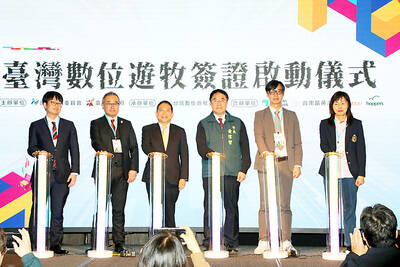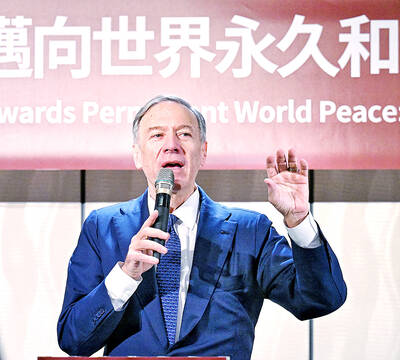Some of the most experienced Asian and US foreign policy experts want the new US president to give urgent attention to Asia amid waning US influence and a shifting power balance in the region.
The Asian experts warned in candid reports compiled by the US-based Asia Foundation that although the US has been the regional power in Asia since the end of World War II, there was now uncertainty about the relevance of its power given current regional dynamics.
“The United States may still hold the balance of power in Asia, but does this mean that the US necessarily holds the most influence?” they asked in one report.
“Gradually emerging is a multilateral Asian architecture based on a series of increasingly shared norms around interstate relations and security,” said former South Korean foreign minister Han Sung-joo, Singapore envoy Tommy Koh and former Indian National Security Advisory Board member C. Raja Mohan.
They compiled the report after chairing workshops in the region that sought feedback on US policies in Asia.
The US experts, on the other hand, wanted the successor of US President George W. Bush to pay “urgent attention” to Asia.
“Size matters and they have it,” said former US under secretary of state Michael Armacost and ex-assistant secretary of state J. Stapleton Roy.
Asia is home to more than half the world’s population and six of the 10 largest countries, produces more than 30 percent of global exports and controls a much larger share of the world’s savings pool, they said.
While the US has been preoccupied with the situation in the Middle East, “the Asian balance has been shifting quietly, if inexorably, in the direction of others, they said. “China, Japan, India, and Russia are casting a longer shadow.”
In addition, they said, it was in Asia that the interests of the great powers intersect most directly, and the most consequential emerging powers — China and India — are located.
“We must devote to Asian issues the attention and resources their intrinsic importance to the United States demands,” they said.
US policy to Asia has scarcely been mentioned by the presumptive presidential candidates, Democratic Senator Barack Obama and Republican Senator John McCain, and the region east of Afghanistan has not been on their travel itineraries.
“We strongly recommend that you put Asia onto the agendas for the upcoming political conventions,” Asia Foundation president Douglas Bereuter said in a statement sent this week to Republican and Democratic foreign policy campaign advisors accompanying reports by the Asian and US experts.
“Good foreign policy to Asia is critical for the next administration — and should be addressed by the platforms during the conventions” of the two parties ahead of the November elections, Bereuter said.
The Asian experts also wanted the new US administration to “actively support a regional architecture” in rapidly growing Asia, including signing a non-aggression accord of the ASEAN.
“There is a growing sense of Asian regionalism; if the US continues to take a narrow perspective on this issue, it stands to lose influence in the region,” they said.

ANNOUNCEMENT: People who do not comply with the ban after a spoken warning would be reported to the police, the airport company said on Friday Taoyuan International Airport Corp on Friday announced that riding on vehicles, including scooter-suitcases (also known as “scootcases”), bicycles, scooters and skateboards, is prohibited in the airport’s terminals. Those using such vehicles should manually pull them or place them on luggage trolleys, the company said in a Facebook post. The ban intends to maintain order and protect travelers’ safety, as the airport often sees large crowds of people, it said, adding that it has stepped up publicity for the regulation, and those who do not comply after a spoken warning would be reported to the police. The company yesterday said that

QUIET START: Nearly a week after applications opened, agencies did not announce or promote the program, nor did they explain how it differed from other visitor visas Taiwan has launched a six-month “digital nomad visitor visa” program for foreign nationals from its list of visa-exempt countries who meet financial eligibility criteria and provide proof of work contracts. To apply, foreign nationals must either provide proof that they have obtained a digital nomad visa issued by another country or demonstrate earnings based on age brackets, the Bureau of Consular Affairs said. Applicants aged 20 to 29 must show they earned an annual salary of at least US$20,000 or its equivalent in one of the past two years, while those aged 30 or older must provide proof they earned US$40,000 in

UNITY MESSAGE: Rather than focusing on what Trump said on the campaign trail about Taiwan, Taipei should be willing to engage with the US, Pompeo said Taiwan plays a key role in Washington’s model of deterrence against China, former US secretary of state Mike Pompeo said in a speech in Taipei yesterday. During US president-elect Donald Trump’s first term, “we had developed what we believe was a pretty effective model of deterrence against adversaries who wanted to undermine the set of rules and values that the people of Taiwan and the people of the US hold dear,” Pompeo said at a forum organized by the Formosa Republican Association. “Succeeding in continuing to build this model will not solely rest at the feet of president Trump and his team,
TECH CORRIDOR: Technology centers and science parks in the south would be linked, bolstering the AI, semiconductor, biotech, drone, space and smart agriculture industries The Executive Yuan yesterday approved a “Southern Silicon Valley” project to promote the development of an artificial intelligence (AI) and semiconductor industry in Chiayi County, Tainan, Pingtung County and Kaohsiung. The plan would build an integrated “S-shaped semiconductor industry corridor” that links technology centers and science parks in the south, Executive Yuan spokesperson Michelle Lee (李慧芝) said yesterday after a Cabinet meeting. The project would bolster the AI, semiconductor, biotech, drone, space and smart agriculture industries, she said. The proposed tech corridor would be supported by government efforts to furnish computing power, workforce, supply chains and policy measures that encourage application and integration